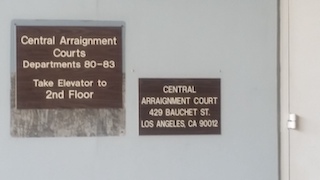Some of our clients are also naturally salesmen and expect their likeable personality to cause the police officer to like them so much that they will leave without arresting them.
This is a gigantic mistake. We estimate that one-third to even two-thirds of our clients “convict themselves” through their speaking with police. In other words, not speaking with police can be very important.
But just how does one assert the right to remain silent? There are no magic words, but one should understand that a request for an attorney automatically invokes the privilege to remain silent.
(1984) 157 Cal.App.3d 694, 705. Such a request for an attorney to be present must be in response to interrogation (i.e. it does not work for a request for a blood draw in a DUI or a search or a car or house).
(2009) 175 Cal.App.4th 1436, 1450.
The law is that the suspect must “so unambiguously request counsel with sufficient clarity that a reasonable police officer under the circumstances would understand the statement to be a request for an attorney.”
Davis v. U.S. (1994) 512 U.S. 452, 454, 114 S.Ct. 2350. It is an objective standard. A police officer’s subjective view concerning whether the suspect waived his or her rights is irrelevant to the analysis.
People v. Roquemore (2005) 131 Cal.App.4th 11, 27.
Silence is not conduct that has been held to invoke the privilege to remain silent.
Berghuis v. Thompkins (2010) 560 U.S. 370, 384, 130 S. Ct. 2250. However, the refusal to sign a waiver form to allow his statements to be tape-recorded also is not an invocation of the right to remain silent.
People v. Johnson (1993) 6 Cal.4th 1, 25.
What needs to be said? What are some examples of things that worked and did not work? For example, if one says, “maybe I should talk to a lawyer” after one already waiver the right to remain silent and start questioning, the “maybe I should talk to a lawyer” is not unambiguously clear so that a reasonable police officer would understand the comment to be a request to remain silent.
Davis, supra. Likewise, “I think I would like to talk to a lawyer” was not unambiguous enough to properly assert the right to remain silent.
Clark v. Murphy (9th Cir. 2003) 331 F.3d 1062. Also, a rhetorical question to police, “Should I have somebody here talking to me, is this the way it’s supposed to be done?” was ambiguous and not an assertion of the right to remain silent.”
People v. Cunningham (2015) 61 Cal.4th 609, 645. Similarly, “if I’m being charged with this I think I need a lawyer” was not sufficiently unambiguous to invoke the right to remain silent.
People v. Suff (2014) 58 Cal.4th 1013, 1068. The court reasoned in
Suff that such a statement by the suspect was at best, ambiguous because reasonable police officers would not have known if a suspect would be charged, since the charging decision is not made by police.
On the other hand, the statement, “My – step dad got a lawyer for me – I’m going to – can – can you call him and have my lawyer come down here?” was not ambiguous or equivocal.
Garcia v. Long (2015) 808 F.3d 771, 773. A 17-year-old’s repeated statement, “Just take me home” was sufficient when repeated three times.
People v. Villasenor (2015) 242 Cal.App.4th 42, 66.
For these reasons, we strongly suggest the client simply say, “Officer, I respect what you do for a living. However, I’d like to follow the advice of my attorney and remain silent. I want my attorney here before I answer any questions. No disrespect intended.”
For more information about Fifth and Sixth Amendment issues, please click on the following articles:
- Carefully Invoke Your Fifth Amendment Right to Remain Silent
- Murder Conviction Reversed for Miranda Violation by Police
- Four Facts About Miranda Rights That Everyone Should Know
Contact us.  Bachet Street Central Arraignment Court
Bachet Street Central Arraignment Court